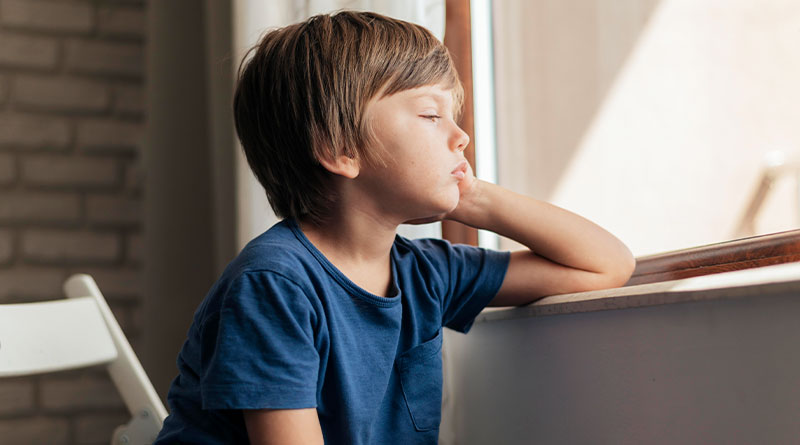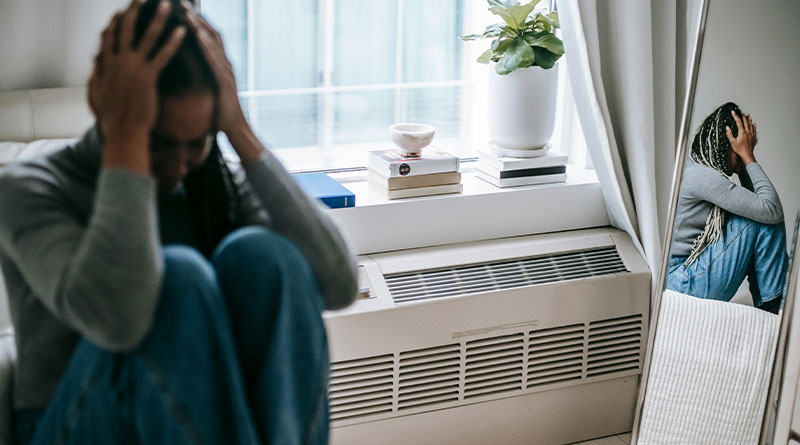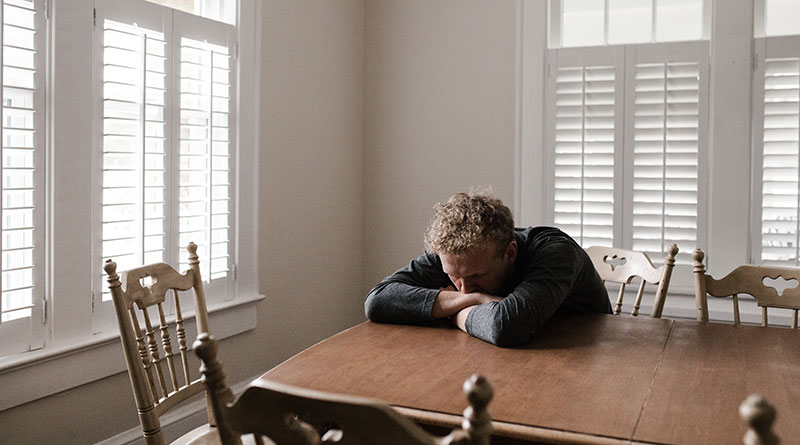Nearly one-third of all teenagers between 13 and 18 will suffer from an anxiety condition, as reported by the National Institutes of Health. There has been a steady increase in these numbers, with a 20% increase in anxiety disorders among children and adolescents between 2007 and 2012.
The doubling of these numbers, along with the doubling of hospital admissions for suicidal adolescents, raises several troubling questions. To know more about Anxiety in Children and Adolescents keep on reading this article.
Symptoms of Anxiety in Children and Adolescents
Anxiety in children and adolescents can present in various ways and is frequently misdiagnosed. Irritability, anxiousness, excessive worrying, shyness, sleep problems, and physical symptoms like headaches or digestive issues are all indications of anxiety disorders in children.
What goes on in the world has a profound impact on children. They may experience exhaustion, loneliness, isolation, dread, and embarrassment. In addition, children with anxiety may have trouble forming friendships and participating in extracurricular activities.
- Difficulty concentrating is one of the most often reported symptoms in children.
- Nightmares or trouble falling asleep.
- Temper tantrums or emotional instability.
- Acting nervous or restless.
- Prolonged bouts of sobbing.
- Constantly whining about being sick.
Concerns about identity and self-esteem dominate adolescents’ minds. These may include worries about their physical growth, how they feel about their bodies, how others regard them, and how well they do academically.
Teens’ anxiety isn’t always obvious because they conceal their true emotions. Some warning signals include
- Persistent anxiety or concern over everyday matters.
- Isolation from friends and other people.
- Aggression or irritability.
- Academic struggles or unexpectedly low grades.
- There was a refusal to attend classes.
- Lack of sleep is a concern.
- Substance mistreatment.
- Continually in need of reassurance.
Anxiety can harm your child’s or adolescent’s thoughts, emotions, and physical health, regardless of the exact symptoms they may be experiencing. This, in turn, may impair their performance in school and social situations. The first step in assisting them in dealing with the problem is determining what triggers their fear.
Why Do So Many Young People Nowadays Suffer From Crippling Anxiety?
What is happening? We can’t pinpoint a single cause for Anxiety in Children and Adolescents, although several possibilities come to mind. Consider the following in addition to your genes, brain chemistry, personality, and experiences:
The constant pressure to perform well and meet lofty goals
Compared to past generations, today’s adolescents may feel more pressure to complete due to standardized testing and a culture of achievement. Higher Education Research conducts a study annually to gauge whether or not new college students feel overwhelmed by their studies’ demands. The percentage of pupils who said “yes” in 2016 was 41%, up from 28% in 2000 and 18% in 1985.
A terrifying and dangerous environment
Drills and lockdowns have become commonplace in response to rising school shootings. There has been gunfire in open areas. Many have died due to terrorist strikes in the United States and elsewhere. Anyone can understandably feel unsafe in public after hearing or reading about them on the news.
Social Media
Children and teenagers in the modern era are always online. Understandably, the feedback they receive on social media would impact their sense of self-worth and worldview. They can’t help but evaluate their life and social circle in light of what they read about on other people’s social media profiles.
Some kids worry too much about regular life activities like going to school, having a sleepover, or attending summer camp, for example, and their reactions to these typical developmental experiences are out of proportion. Typically, this begins in the pre-pubescent years.
Suggestions For Easing Anxiety in Children and Adolescents
Address their concerns properly
Although it may seem counterintuitive, the best thing you can do for your anxious youngster is to remain as calm and optimistic as possible. Your reaction to your child’s feelings and actions will greatly affect how well they manage their difficulties.
Address your child’s concerns head-on
Ask your kid how they feel about their anxieties to start a conversation. Telling a child they shouldn’t worry or to quit dwelling on their difficulties isn’t a validating or supportive response. Instead of trying to calm your child’s fears, telling them that it’s normal for them to feel anxious and that you’ll support them through it is preferable.
Ask your kid to tell you a story about how they feel if they have trouble putting their emotions into words. Your youngster may feel more at ease and better articulate their feelings and sensations if they pretend to be someone other than themselves.
Demonstrate care and sympathy
A combination of empathy and encouragement with a team effort to solve problems is a potent strategy. According to studies, empathy from a mother can profoundly affect a child’s emotional well-being.
Make it clear to your child that anxiety is common and that you are there to assist them in figuring out what triggers their anxiety and how to cope with it. This collaborative strategy strengthens the link between you and your child but also helps them learn to cope with worry.
Help, but don’t dictate
The trick is to assist your youngster in mastering their worry without smothering them. You’ve already done much to help by listening carefully and showing sympathy.
You can discuss potential responses to certain scenarios. Consider what to do if your child suffers from separation anxiety and, while at a friend’s house, experiences fear about returning home. If your child is worried about being picked up at the wrong time, they can always ask their friend’s mother to phone you or tell them when you’ll be there. This kind of plan might be a great way to calm your child’s fears and worries.
Create resilience in your youngster
The best way to assist your child in managing their anxiety is to teach them techniques for dealing with situations that make them uncomfortable. Your youngster will develop greater confidence and competence if you consistently praise their efforts. Create manageable, short-term objectives. After each success, you might tell them, “I’m so proud of how you handled the situation and worked through your anxiety.”
Always applaud your child’s efforts, especially when they show courage in adversity. If your child has a setback, tell them it is not a failure but rather a learning experience that will help them succeed. Talk with them about how they can improve their performance the next time. Taking charge of the situation will make them feel stronger.
Conclusion
Regular sleep, exercise, meditation, relaxation apps, or yoga can all be useful in treating Anxiety in Children and Adolescents, as can be the case with any mental health problem. These are not meant to replace cognitive behavioral therapy or medicine.
Parents should be concerned about their kids’ mental health and seek answers and assistance if they have any concerns or queries.
Sahil Sachdeva is the Founder of curemedoc.com and a Digital Marketing professional with years of experience. If you need help in Content writing and want to increase your website ranking, connect with him, as he has some premium websites where you can share blogs with DoFollow links and increase your website’s ranking on Google.





